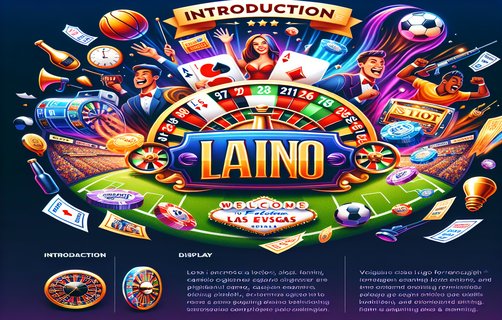Mastering Casino Gaming: A Comprehensive Tutorial on Strategy and Tools
In the fast-paced world of casino gaming, understanding the various components of strategy and regulation is crucial for success. This guide delves into several key areas: the implications of credit card usage in casinos, the significance of GamStop, interactive elements in gaming, pre-flop strategy for poker, different types of bets, the concepts of implied odds vs. pot odds, the dynamics of short-handed play, and effective gameplay in a challenging environment. By the end of this tutorial, you will have a robust understanding of how to navigate these aspects proficiently.
Credit Card Casino: Using credit cards to fund your casino play can offer convenience, but it comes with both benefits and risks. Many online casinos accept major credit cards, which allows for instant deposits and often comes with reward points. However, it’s essential to be mindful of your spending limits to prevent falling into debt. Consider setting a predefined budget for your gaming endeavors, and only use a portion of your available credit that you’re comfortable risking. Additionally, be aware of the fees that may be incurred with cash advances, which often accumulate interest immediately. Responsible credit card usage can enhance the gaming experience without compromising financial health.
GamStop: In a responsible gambling framework, GamStop serves as a vital tool in the UK. It is a free online self-exclusion program designed to assist individuals in controlling their gambling activities. Players can voluntarily exclude themselves from all online gambling sites that are registered with GamStop for a specified period. This can be a significant step for those who recognize signs of gambling addiction or excessive gameplay. It's important for gamblers to familiarize themselves with this resource and consider using it proactively as part of a balanced approach to gaming lifestyle.
Interactive Elements: The rise of technology has made interactive gaming elements increasingly prevalent in both online and brick-and-mortar casinos. These features can include live dealer options, video chat capabilities, and gamified bonuses that enhance player engagement. As a player, take advantage of these interactive tools to boost your gaming experience. Participating in live dealer games, for example, provides a more immersive experience that closely resembles being in a physical casino, allowing for social interaction and real-time play, which can add excitement to your gaming sessions.

Pre-flop Strategy: If you’re diving into poker, mastering the pre-flop strategy is essential. This phase determines how you will approach the hand with your starting cards. Considerations include your position at the table, your stack size, and the tendencies of your opponents. If you are in a late position, for example, you can afford to play a wider range of hands, while an early position typically demands more selective play. Understanding which cards to play and how to assess the dynamics at the table will significantly influence your outcomes during the game.
Inside Bets: Inside bets are a common term in games like roulette and refer to wagers made on specific numbers or combinations of numbers on the inside portion of the layout. While they carry higher payouts, they also come with lower odds of winning. As a player, it is wise to use inside bets sparingly and combine them with outside bets to balance risk and reward. Diversifying your betting strategy can enhance your chances while maintaining an entertaining gaming experience.

Implied Odds vs. Pot Odds: Understanding the difference between implied odds and pot odds is critical for making informed betting decisions in poker. Pot odds refer to the ratio of the current size of the pot to the size of the bet you must call. Implied odds take it a step further by considering the potential future bets you can earn if you hit your hand. Evaluating both concepts allows you to determine if a call is profitable, guiding your decisions on whether to continue in the hand or fold to protect your chip stack.
Short-handed Play: Short-handed play, which occurs when there are fewer players at the table, requires a different strategy than a full-ring game. With fewer opponents, players tend to loosen up their ranges and gamble more frequently. As such, adjusting your strategy to take advantage of this dynamic is essential. Playing aggressively and being aware of your opponents’ tendencies can enable you to seize pots more frequently, cultivating a more profitable game.
In conclusion, mastering casino gameplay requires not only an understanding of the various games but also the underlying strategies and responsible gaming practices. With a grasp of credit card mechanics, GamStop, gaming interactivity, betting strategies, and the nuances of poker, you can build a solid foundation that not only makes you a smarter player but also enhances your overall experience in the vibrant world of casino gaming.
